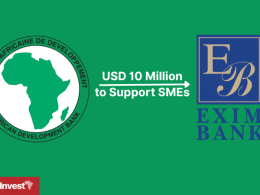The Confederation of Tanzania Industries (CTI), the leading association representing manufacturers in the country, issued its official response to the National Budget 2025/26, commending reforms to support industrial growth while expressing concern over certain tax measures that could harm the sector.
CTI welcomed the Government’s continued commitment to improving the business environment and fostering inclusive economic growth, in line with the objectives of the Third Five-Year Development Plan 2021/22–2025/26.
The TZS 56.49 trillion national budget for the 2025/26 fiscal year, presented on 12th June by Minister for Finance Dr. Mwigulu Nchemba, marks a 12.3% increase from the 2024/25 budget.
Of this, TZS 40.46 trillion is expected from domestic revenue, representing a 16.9% rise over the previous fiscal year.
CTI noted with appreciation various reforms proposed in the budget, including the development of a Second Blueprint for Regulatory Reforms, aimed at simplifying investment procedures, and legal amendments to improve coordination of fee and levy imposition by public institutions.
CTI further praised the removal of the TZS 300,000 licensing fee for manufacturers and importers of excisable goods and the reaffirmation of the three-year freeze on excise duty increases announced in 2023/24.
However, CTI flagged several proposals it says contradict the freeze and threaten local industry operations.
These include the proposed increase in excise duty by TZS 20 per litre on beer, TZS 30 on wine and other fermented beverages, and TZS 50 on spirits.
The Confederation warned that these increases would raise production costs and disrupt company investment and production plans.
CTI also opposed the introduction of a 5% excise duty on locally manufactured sausages, arguing that the sub-sector requires policy support to grow rather than new tax burdens.
Other measures considered detrimental include a proposed 25% import duty on cotton yarn and a 35% duty on imported vitenge fabrics, both of which CTI believes could affect input availability and local textile manufacturing.
In its statement, CTI also lists recommended and approved tax changes seen as positive for the sector, including VAT zero-rating for textiles made from locally grown cotton, VAT exemptions for locally produced edible oils, and excise reductions on local ethyl alcohol and energy drinks.
Duty protection and remission on a wide range of imported industrial inputs and packaging materials were also welcomed by CTI as crucial for enhancing domestic competitiveness and attracting investment.
CTI affirmed its continued collaboration with the Government and stakeholders in ensuring successful implementation of the budget, noting that the selected priority areas—flagship project completion, production sector strengthening, human capital development, digitalization, and improved investment conditions—are aligned with Tanzania’s industrialisation agenda.
CTI concluded that if implemented effectively, the 2025/26 budget could support stable revenue mobilisation, economic resilience, and long-term industrial growth.










